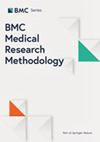在六周内进行两次证据综述--试点项目的经验和评估
IF 3.9
3区 医学
Q1 HEALTH CARE SCIENCES & SERVICES
引用次数: 0
摘要
证据合成组织正努力满足委托人对快速响应证据合成委托的需求。在本项目中,我们试行了一种密集流程,在六周内完成证据综合,而不是标准的 4-6 个月的准备时间。我们的目标是探索研究人员如何体验密集型工作,找出障碍和促进因素,并确定今后如何更系统地引入更密集型的证据合成方法。在前期规划阶段,我们成立了一个强化工作组,并为该试点项目选择了两个委员会。证据综合过程分为两个阶段:规划和强化。规划阶段包括密集阶段的时间安排、探索新的数字工具以及确定同行评审员。强化阶段包括整个证据综合过程。成立了两个审查小组,每个小组都有一名组长,并由一名流程负责人和领导联络人提供支持。在整个项目过程中,团队都会召开反思会议,对流程进行必要的评估和调整。在计划阶段,团队发现了范围、研究问题和纳入标准方面的重大不确定性。为了解决这个问题,他们比原计划更早地与专员进行了接触,澄清了这些方面的问题,并制定了协议。尽管与原计划有一些小的偏差,但两次评审都如期完成,其中一个团队由于没有符合条件的研究而扩大了范围。各小组灵活运作,定期举行会议,并发现由于中断较少,整个过程天衣无缝。机器学习工具为快速选择研究提供了便利。为指导和评估项目而设立的流程领导角色证明是有益的,它提供了结构和支持,尽管与领导联络点更明确的角色划分可以提高效率。总体而言,密集型流程有助于集中精力,提高工作效率,使团队能够有效管理短期成果。与同时参与多个项目相比,研究人员更喜欢集中精力处理一个证据综述。他们认为时间利用更有效,而且能够集中精力完成任务。不过,在未来的证据综述中实施密集方法之前,应考虑到几个方面的影响。本文章由计算机程序翻译,如有差异,请以英文原文为准。
Conducting two evidence syntheses in six weeks – experiences with and evaluation of a pilot project
Evidence synthesis organisations are trying to meet commissioners’ needs for rapid responses to their evidence synthesis commissions. In this project we piloted an intensive process, working to complete evidence syntheses within six-weeks, rather than the standard lead time of 4–6 months. Our objective was to explore how researchers experience working intensively, identify barriers and facilitators, and determine how a more intensive approach to evidence synthesis could be more systematically introduced in the future. In a pre-planning phase, an intensive work group was established, and two commissions were selected for this pilot project. The evidence synthesis process was divided into two phases: planning and intensive. The planning phase, involved scheduling the intensive phase, exploring new digital tools, and identifying peer reviewers. The intensive phase encompassed the entire evidence synthesis process. Two review teams were formed, each with a team lead supported by a process lead and leadership contact point. Throughout the project, teams engaged in reflective meetings to evaluate and adjust processes as needed. During the planning phase, teams identified significant uncertainties regarding scopes, research questions, and inclusion criteria. To address this, they engaged with commissioners earlier than originally planned, clarified these aspects, and prepared protocols. Despite some minor deviations from the original plan, both reviews were completed on schedule, with one team expanding their scope due to the absence of eligible studies. Teams operated flexibly, held regular meetings, and found the process seamless due to fewer interruptions. Machine learning tools facilitated rapid study selection. The process lead role, created to guide and evaluate the project, proved beneficial, providing structure and support, although clearer role delineation with the leadership contact point could have improved efficiency. Overall, the intensive process fostered focus and productivity, allowing teams to manage short-term deliverables effectively. The researchers preferred working intensively with one evidence synthesis over being involved with many projects at the same time. They felt that time use was more effective, and they were able to complete the tasks in a focused way. However, there are several implications that should be considered before implementing an intensive approach in future evidence syntheses.
求助全文
通过发布文献求助,成功后即可免费获取论文全文。
去求助
来源期刊

BMC Medical Research Methodology
医学-卫生保健
CiteScore
6.50
自引率
2.50%
发文量
298
审稿时长
3-8 weeks
期刊介绍:
BMC Medical Research Methodology is an open access journal publishing original peer-reviewed research articles in methodological approaches to healthcare research. Articles on the methodology of epidemiological research, clinical trials and meta-analysis/systematic review are particularly encouraged, as are empirical studies of the associations between choice of methodology and study outcomes. BMC Medical Research Methodology does not aim to publish articles describing scientific methods or techniques: these should be directed to the BMC journal covering the relevant biomedical subject area.
 求助内容:
求助内容: 应助结果提醒方式:
应助结果提醒方式:


